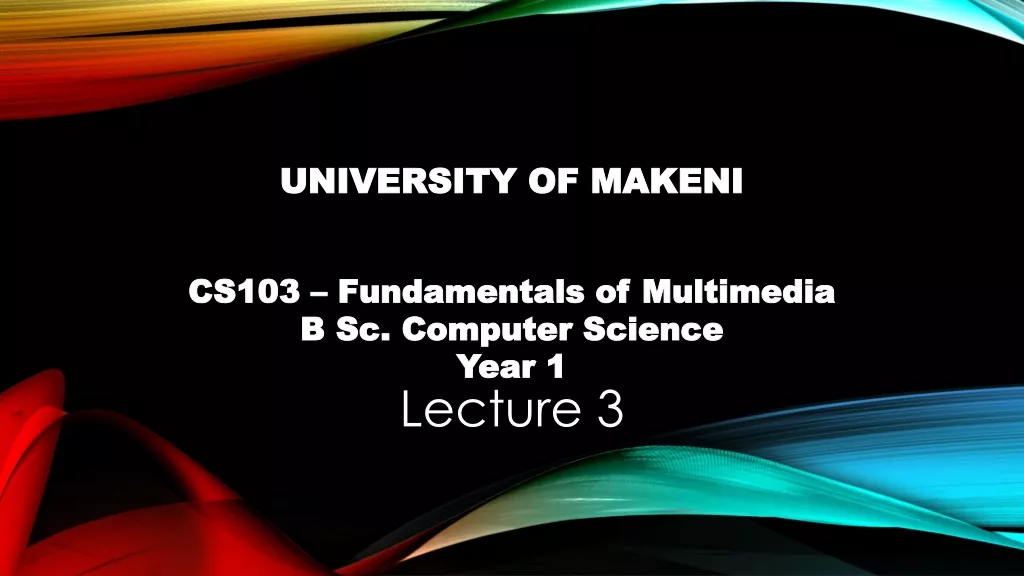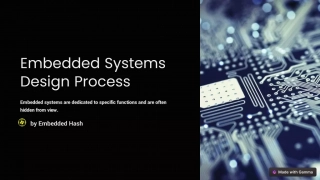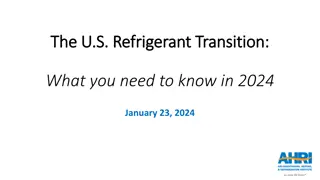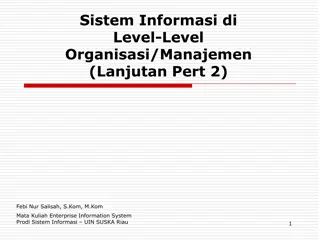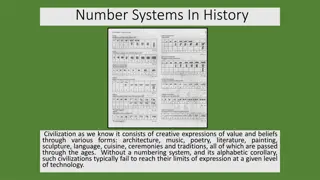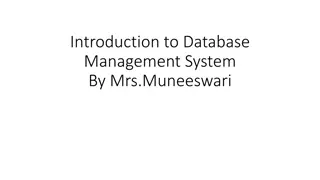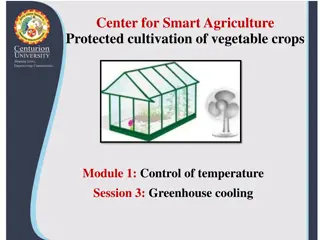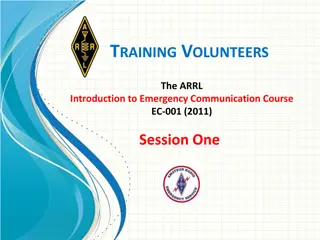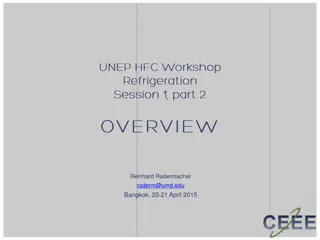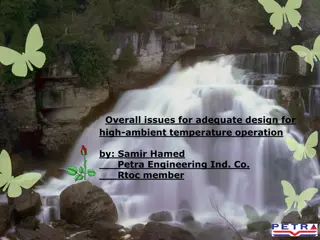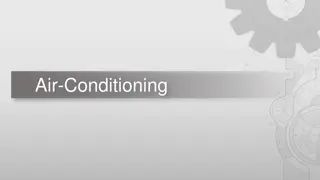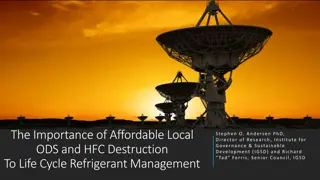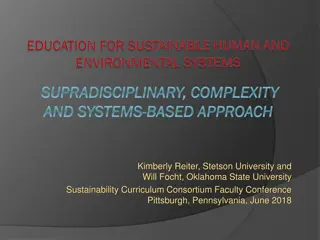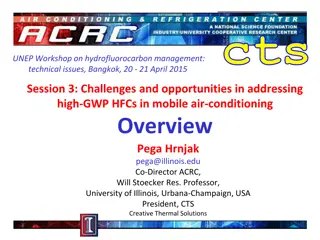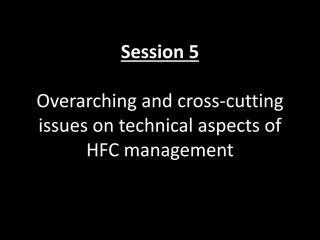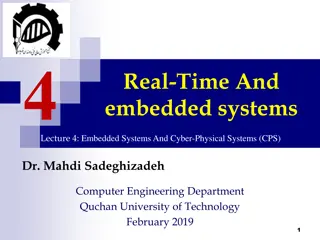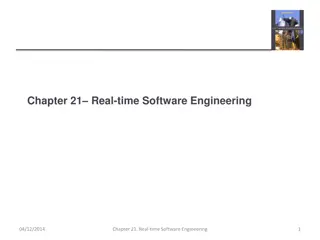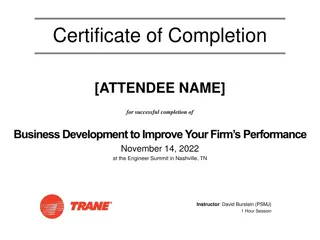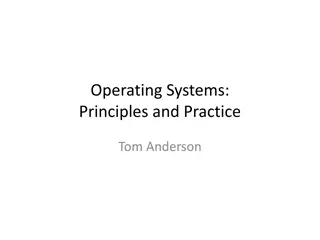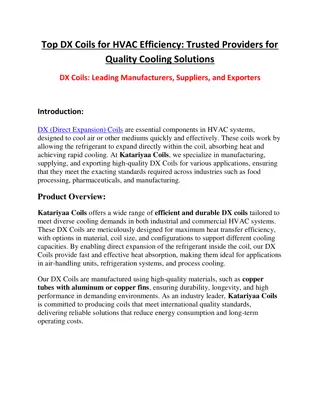Enhancing Food Systems for Improved Food Security and Job Creation
The importance of improving food systems to achieve sustainable development goals and enhance food security and job creation. It covers topics such as the current food systems, the impact of these systems, jobs in the food systems value chain, and key recommendations.
9 views • 24 slides
Multimedia Systems: Hardware and Software Components
Multimedia systems require specific hardware and software components to meet the demands of producing and playing multimedia content. Development systems are used for creating content with higher specifications, while playback systems are used for playing multimedia files with lower specifications.
9 views • 46 slides
Embedded Systems Design Process in the Embedded systems
Embedded systems are all around us, from the tiny microcontrollers in our household appliances to the sophisticated control systems in cars and aeroplanes. But how are these systems designed? Let's delve into the basics of the embedded systems design process in simple terms that anyone can understan
2 views • 9 slides
Insights into the U.S. Refrigerant Transition in 2024
Discover the latest developments in the U.S. refrigerant transition, including updates on the AIM Act implementation, EPA regulations, and phasedown schedules. Stay informed about the state of American innovation and manufacturing in the HVACR industry.
1 views • 20 slides
AHRI 1230-2023 Update: VRF Test Procedure Changes Overview
The AHRI 1230-2023 update brings significant changes to the performance rating of Variable Refrigerant Flow (VRF) systems. This update covers key modifications like Sensible Heat Ratio limits, Controls Verification Procedure, and more. The new standard applies to various VRF systems and aims to enha
4 views • 28 slides
Overview of Distributed Systems: Characteristics, Classification, Computation, Communication, and Fault Models
Characterizing Distributed Systems: Multiple autonomous computers with CPUs, memory, storage, and I/O paths, interconnected geographically, shared state, global invariants. Classifying Distributed Systems: Based on synchrony, communication medium, fault models like crash and Byzantine failures. Comp
10 views • 126 slides
Operating Systems
An operating system is a crucial program that manages all other programs on a computer. It handles tasks like input recognition, file management, and device control. There are different types of operating systems such as single-user, single-task systems, multi-user, multi-task systems, real-time ope
6 views • 11 slides
Information Systems in Organizational Management
Management in organizations is divided into three levels: operational, tactical, and strategic. Each level requires different information systems to support various activities. Operational systems focus on routine transactions and control processes, while middle-level systems aid in semi-structured
10 views • 39 slides
Explore the Top 5 Trends in Alarm Systems with Shellharbour Security Systems
Explore the latest trends in alarm systems with Shellharbour Security Systems. Learn about advancements such as smart home integration, wireless technology, AI-powered monitoring, and more. Stay informed to enhance your home or business security with cutting-edge solutions. Visit: \/\/shellharbourse
7 views • 8 slides
Number Systems In History
Civilizations throughout history have expressed their values and beliefs through various creative forms like architecture, music, and literature. The development of numbering systems played a crucial role in advancing society's ability to communicate, track records, and engage in trade. From the ear
1 views • 17 slides
Introduction to Database Management System Explained
This presentation covers the basics of database management systems, including definitions of data, types of data, structured and unstructured data, storing data in computers using file systems and database systems, and issues with file systems like data redundancy, inconsistency, difficult data acce
3 views • 18 slides
Different Types of Recommender Systems
Recommender systems play a crucial role in providing personalized recommendations to users. This article delves into various types of recommender systems including Collaborative Filtering, Content-Based, Knowledge-Based, and Group Recommender Systems. Collaborative Filtering involves making predicti
1 views • 7 slides
Efficient Greenhouse Cooling Systems for Smart Agriculture
Active summer cooling systems like fan-and-pad and fog systems are crucial for maintaining optimal temperatures in greenhouses. These systems work by utilizing evaporation to remove heat from the air. Fan-and-pad cooling systems have been in use since 1954, where water is passed through pads to cool
1 views • 23 slides
National Mine Safety Week 2023 - Vehicle Safety Guidelines
Explore the comprehensive safety guidelines for vehicle operation during National Mine Safety Week 2023. Learn about maintaining safety equipment, cabin safety systems, visibility safety systems, operational safety systems, emergency safety systems, other safety systems, training responsibilities, a
3 views • 10 slides
Polymeric Controlled Drug Delivery Systems
Polymeric controlled drug delivery systems play a crucial role in regulating drug release through diffusion, solvent penetration, and chemical mechanisms. These systems include diffusion-controlled, solvent-controlled, and chemically-controlled devices, each operating based on specific principles. S
1 views • 33 slides
Troubleshooting Today's X-ray Systems by John DiPasquale
Gain insights into troubleshooting modern X-ray systems with a comprehensive guide presented by John DiPasquale. Explore X-ray system subsystems, including generator systems and imaging systems, with detailed explanations and visuals. Learn about the basics of generator systems, required circuits, a
2 views • 33 slides
Emergency Communication Systems for Volunteer Training
This content covers various topics related to emergency communication systems for volunteer training, including agency communication systems, government radio systems for police and fire departments, emergency medical radio systems, American Red Cross frequencies, and types of served-agency radio sy
2 views • 29 slides
Introduction to Embedded Systems Design
Embedded Systems Design, Chapter 1 provides an insightful overview of embedded systems, distinguishing them from general-purpose computers. The chapter delves into the characteristics of embedded systems, their design considerations, and the various types of embedded computers such as general-purpos
2 views • 7 slides
Overview of Aquaflair and Uniflair Chillers
The AquaflairERACERAHERAF1 series features state-of-the-art technology for maximum reliability and efficiency. With cooling capacities ranging from 50 to 110 kW, these chillers utilize environmentally friendly R410A refrigerant and electronic thermostatic valves for energy efficiency. The ERAC, ERAH
1 views • 96 slides
Comparison of Refrigerant Properties and Emissions in Refrigeration Systems
This content covers information on refrigerant properties for refrigeration equipment, including displacement volume, flammability, and performance metrics like COP and GWP. It also discusses total emissions comparisons based on material manufacturing, energy consumption, and refrigerant loss. Addit
0 views • 4 slides
Design Considerations for High Ambient Temperature Operations
Designing for high ambient conditions requires special attention to condensing temperatures, refrigerant types, safety standards, and component availability. Careful selection of heat exchangers, compressors, and system applications is crucial to ensure energy efficiency and safety in various coolin
0 views • 8 slides
Impact of EU F-Gas Rules on Refrigerant Management
The new EU F-Gas rules aim to phase down high global warming potential refrigerants in Europe, promoting the use of lower GWP alternatives. Industry welcomes the regulations but calls for a focus on energy efficiency and overcoming barriers to adopting new refrigerants. Assessments highlight the eco
0 views • 9 slides
Refrigeration Cycles and Equipment
Explore the fundamentals of mechanical and absorption refrigeration, refrigerant heat absorption and rejection, compressor types, condensers, expansion devices, evaporators, and the operation of absorption refrigeration cycles. Learn about refrigeration capacity, refrigerants, halogen refrigerants,
0 views • 43 slides
Information Systems in Organizations: Overview and Implementation
Information systems play a crucial role in organizations, encompassing transaction processing systems, functional area information systems, and enterprise resource planning systems. This content delves into the purpose of transaction processing systems, the support provided by information systems ac
2 views • 30 slides
Efficient Hydronic Comfort Systems for Sustainable Building Solutions
Hydronic comfort systems offer safe, reliable, and sustainable solutions for maintaining building efficiency and increasing comfort levels. These systems use water as a natural choice, reducing refrigerant content and improving energy efficiency. They provide multiple comfort options, ensure product
0 views • 10 slides
The Main Components of Air Conditioning Systems
Air conditioning is a process that alters the properties of surrounding air to create comfortable conditions through cooling, heating, and dehumidification. Key components include the blower motor, compressor, condenser, expansion valve, filter, dryer, and evaporator. Blowers help in heat exchange,
0 views • 11 slides
Cascade Control Systems in Industrial Processes
Cascade control systems play a crucial role in improving process control efficiency by incorporating feedback loops within feedback loops. This type of control architecture helps to better handle disturbances and variations in the process by creating secondary loops that monitor specific parameters.
3 views • 8 slides
Overview of Secondary Glycol Units Design and Equipment Operation
Explore the design goals, equipment resources, field piping layout, and water & refrigerant piping reviews for secondary glycol units, covering aspects like reduced refrigerant charge, redundancy, visibility of issues, energy efficiency, and more. The equipment design includes rack compressor, glyco
0 views • 14 slides
Sustainable Refrigerant Management: Local Destruction & Montreal Protocol Strengthening
Explore the significance of affordable local destruction of ozone-depleting substances (ODSs) and HFCs for life cycle refrigerant management. Learn about the importance of strengthening the Montreal Protocol to mitigate climate impacts. Discover key takeaways for preventing climate tipping points, p
0 views • 17 slides
Sustainable Education for Human and Environmental Systems
Sustainable Education for Human and Environmental Systems (SHES) focuses on fostering sustainable societies through social learning and systems thinking. It aims to promote interconnectedness between human and environmental systems, with a vision of enhancing well-being while maintaining the viabili
0 views • 19 slides
Challenges and Opportunities in Addressing High-GWP HFCs in Mobile Air Conditioning: Insights from UNEP Workshop
The UNEP workshop in Bangkok discussed technical issues related to high-GWP HFC management in mobile air conditioning. Experts highlighted the pressure for GWP reduction in Europe, the historical competition between CO2 and R134a, and advancements in technology over the past decade in refrigerant sy
0 views • 9 slides
Technical Aspects of HFC Management: Overarching Issues & Solutions
Addressing critical technical aspects of HFC management including availability, costs, energy efficiency, flammability, safety standards, leak reduction, and training. Highlighting key areas such as patents, operational costs, and energy efficiency to drive innovation and sustainability in refrigera
0 views • 11 slides
Embedded Systems and Cyber-Physical Systems
Embedded systems are specialized computer systems embedded within larger systems, such as control systems and car controllers. This lecture covers real-time aspects, applications of Cyber-Physical Systems (CPS), and examples like the Boeing 777/Airbus A380 cockpit. It discusses the design process of
1 views • 22 slides
Real-time Software Engineering for Embedded Systems
Embedded systems play a crucial role in controlling various machines and processes. Real-time software engineering focuses on designing systems that respond instantly to events, ensuring correctness and timeliness. Characteristics like continuous operation, unpredictable environment interactions, an
0 views • 59 slides
Engineer Summit Certificates of Completion November 14, 2022
Recognition for successful completion of various sessions at the Engineer Summit in Nashville on November 14, 2022. Topics covered include business development, electrification of heat, HVAC building automation, financial benchmarking, affecting change, productivity with software tools, navigating t
0 views • 9 slides
Operating Systems: Principles and Practice in CSE Curriculum
Dive into the world of operating systems through the lens of "Operating Systems: Principles and Practice" by Tom Anderson. Discover how this course fits in the UW CSE curriculum, covering systems programming, operating system interfaces, and distributed systems. Explore the project work on building
0 views • 21 slides
DX Coils Manufacturers in Mumbai
DX (Direct Expansion) Coils are essential components in HVAC systems, designed to cool air or other mediums quickly and effectively. These coils work by allowing the refrigerant to expand directly within the coil, absorbing heat and achieving rapid c
0 views • 3 slides
Why Does My BMW Blow Hot Air with the AC On Common Causes and Fixes
Discover why your BMW's AC blows hot air and explore common causes, including refrigerant leaks, faulty compressors, and electrical issues. This guide provides expert insights and practical fixes to restore your car's cooling efficiency. Learn when p
1 views • 40 slides
Why Is My Audi Q7’s AC Blowing Warm Air Common Causes and Fixes
If your Audi Q7\u2019s AC is blowing warm air, common causes include low refrigerant levels, a faulty compressor, a clogged condenser, or electrical issues. A refrigerant recharge, compressor repair, or condenser cleaning may fix the problem. Regular
1 views • 25 slides
Why is my Volvo car not blowing cold air
If your Volvo\u2019s AC isn\u2019t blowing cold air, it could be due to low refrigerant levels, a faulty compressor, a clogged condenser, or electrical issues. A refrigerant leak or malfunctioning blend door actuator can also impact cooling. Prompt d
1 views • 27 slides

